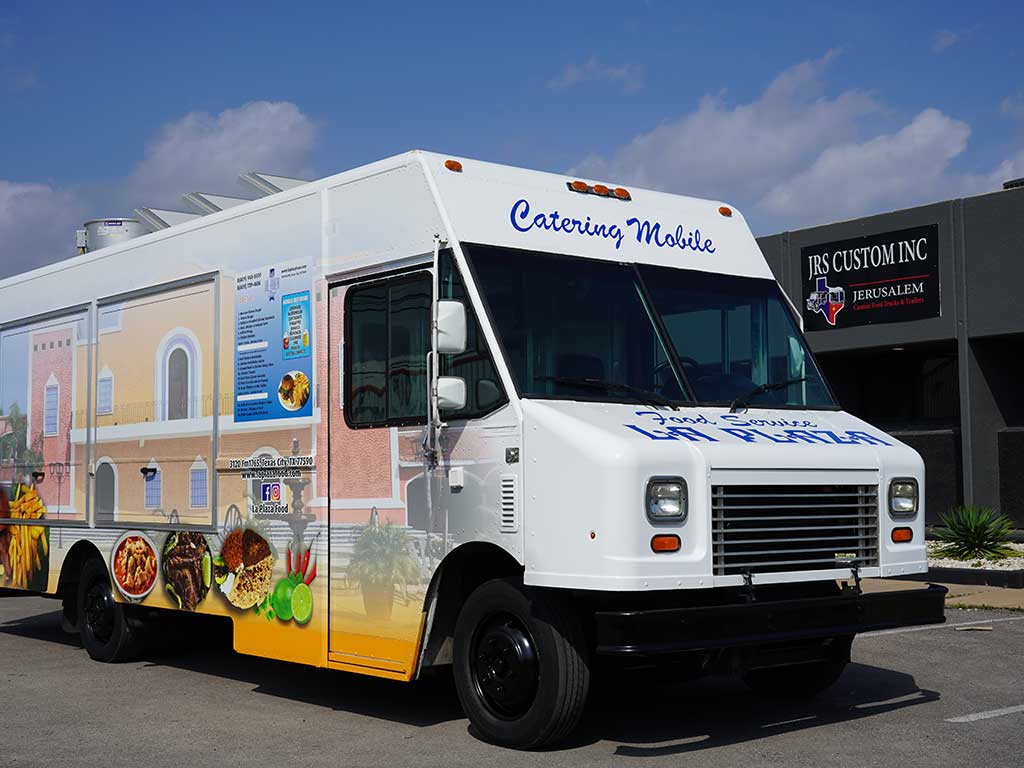
Starting a food truck business can be an exciting and rewarding venture. Not only does it offer the opportunity to showcase your culinary skills and passion for food, but it also allows you to connect with a wide array of customers in different locations. However, like any business endeavour, proper planning is crucial for success. In this blog, we will guide you through the essential steps to plan and launch your very own food truck business.
1. Define Your Concept and Target Market
Before diving into the logistics, it's essential to have a clear vision for your food truck business. Start by defining your concept – the type of cuisine you want to serve, the style of your food, and any unique selling points you may have. You’re going to be most comfortable going with the cuisines and techniques you know best, but the real key is finding a lane within that comfort zone that no local food truck appears to do.
Additionally, analyze and identify your target market, as this will help in determining where and when to park your food truck.

Before diving into the logistics, it’s essential to have a clear vision for your food truck business. Start by defining your concept – the type of cuisine you want to serve, the style of your food, and any unique selling points you may have. You’re going to be most comfortable going with the cuisines and techniques you know best, but the real key is finding a lane within that comfort zone that no local food truck appears to do.
Additionally, analyze and identify your target market, as this will help in determining where and when to park your food truck.
2. Conduct Extensive Market Research

Market research is a critical component of any business planning. It helps you understand your competition, identify gaps in the market, and determine the preferences and behaviors of your target customers. Analyze existing food trucks and brick-and-mortar restaurants serving similar cuisine to identify what makes your concept stand out.
Evidently, the competition is huge. Therefore, it is important that you conduct market research before you jump into your truck and start selling.
3. Develop A Solid Business Plan

A well-structured business plan outlines your goals, financial projections, marketing strategies, and operational procedures. It serves as a roadmap for your food truck business. You have to ensure your business plan includes a comprehensive market analysis, a detailed financial plan, key partnerships, and an overview of your target customer base.
It’s also required for most funding sources, including Small Business Administration (SBA), bank loans, or business partners. Shorter is better; bank loan officers will generally not read more than eight pages.
4. Set a Budget and Secure Financing

Determine your start-up costs, including the purchase or lease of a food truck, equipment, permits and licenses, initial inventory, marketing expenses, and operating costs (such as staff wages, fuel, and maintenance). Explore different financing options, such as personal savings, loans from banks or credit unions, or seeking investors. It is essential to have a clear understanding of your financial capabilities and secure adequate funding for a successful launch.
5. Acquire Necessary Permits and Licenses

Operating a food truck involves legal requirements that vary depending on your location. Research the permits and licenses required in your area, including a business licenses, a driver’s licenses, food handler permit, a health department permit, a seller’s permit, fire certificate, parking permits, and many more. Contact your local health department and department of transportation to ensure compliance with all regulations.
Accordingly, even though you won’t be able to complete the required inspections until you purchase and outfit your mobile eatery, you should find out what’s required of you as early as possible.
6. Choose the Right Equipment

Investing in high-quality, functional equipment is crucial for the smooth operation of your food truck. Some essential equipment for a food truck includes a generator, grills or burners, refrigerators or freezers, food prep stations, and storage containers. Consider the size of your truck and the specific requirements of your cuisine when selecting equipment.
7. Design and Brand Your Food Truck

The visual appeal of your food truck plays a significant role in attracting customers. Develop a captivating and memorable brand identity, including a logo, color scheme, and overall design. Seek the assistance of professional graphic designers to ensure your truck stands out visually and reinforces your brand.
8. Create a Strategic Marketing Plan

Effectively marketing your food truck is essential to attract customers and generate buzz around your business. Utilize both traditional marketing channels such as flyers, brochures, and local event sponsorships, as well as digital platforms including social media, a website, and online food truck directories. Engage with your target audience regularly by sharing enticing food photos, upcoming locations, and special promotions.
It’s a good idea to launch these before your food truck business rolls out, to start connecting with locals who will soon become your customers.
9. Scout Locations and Build a Schedule

Carefully select locations that align with your target market and identify popular areas where food trucks are in demand. Research local events, festivals, office complexes, and entertainment districts to identify potential parking spots. Plan ahead and create a schedule that maximizes your presence during peak times and days of the week.
You’ll want to build a comprehensive list or spreadsheet of these first-come, first-serve locations and how early you’ll need to arrive at each to secure prime parking — or any parking at all — which you’ll likely learn through hard-won experience.
10. Hire and Train Staff (if applicable)

If your food truck requires additional staff to handle food preparation, customer service, or driving, it’s essential to hire and train the right individuals. Look for individuals with a passion for the food industry and excellent customer service skills. Train them on food handling and safety procedures, customer interaction, and truck operations to ensure a seamless experience for your customers.
By following these steps and putting in the necessary time and effort, you can lay a solid foundation for your food truck business. Remember, success comes not only from planning but also from adapting and learning from your experiences. Prepare yourself for the challenges, be open to feedback, and continuously strive to provide excellent food and service. Soon, you’ll be on your way to building a thriving food truck empire. Good luck!
Stay up to date on everything JRS has to offer! Follow us on Facebook page and Instagram page .
Sources:

 Proudly built in America
Proudly built in America